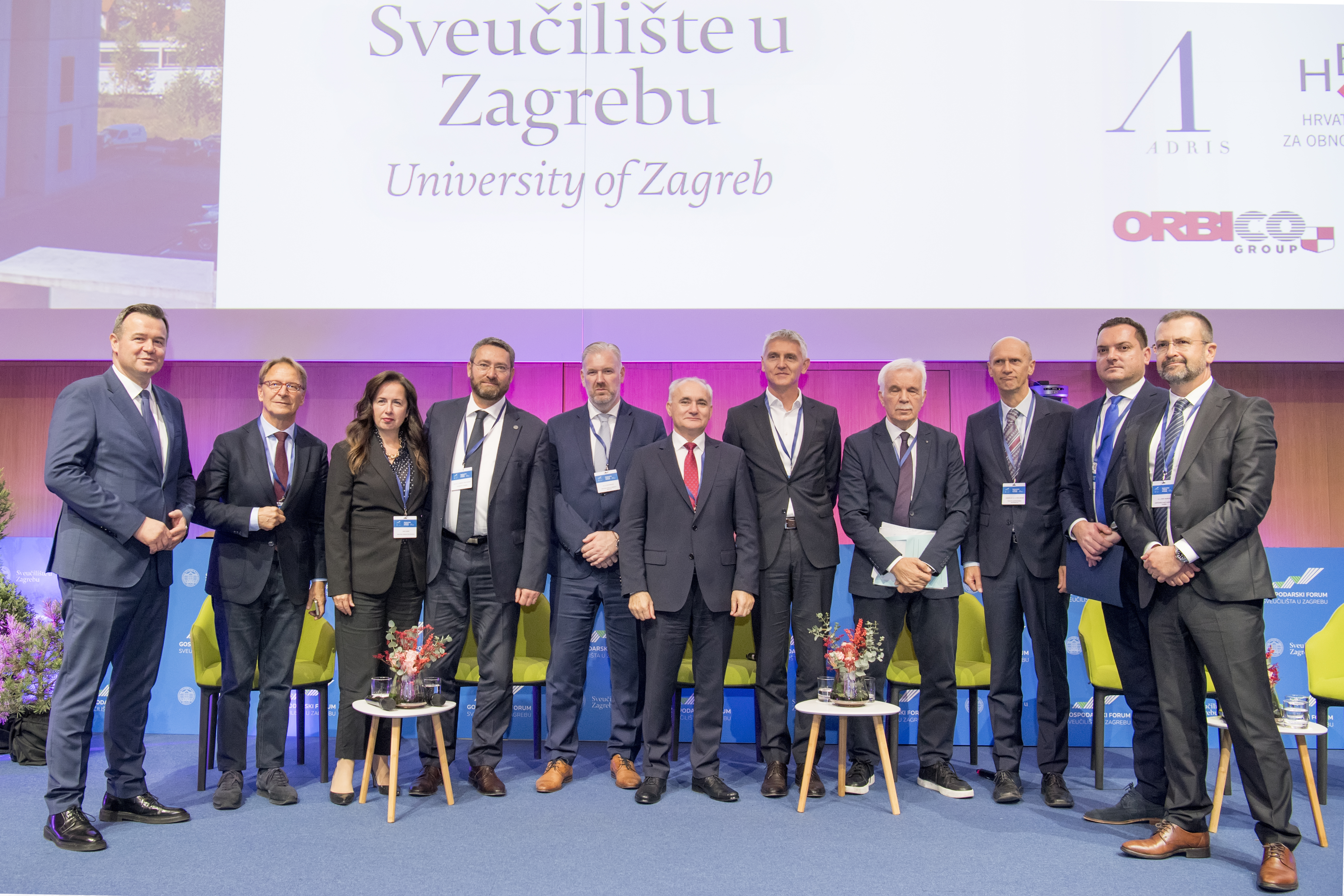
13.11.2025.
The First Economic Forum of the University of Zagreb was held under the title "Competitive and Resilient Croatia" in the ceremonial hall of the South East European Centre for Entrepreneurial Learning (SEECEL) on Tuesday, 11 November.
The event was organised as part of the University of Zagreb Week, which marks the beginning of the 357th academic year with various events taking place from 3 to 15 November and which introduces many aspects of the activities of the largest and oldest university in the Republic of Croatia to the university community and the general public.
As part of the Economic Forum programme, a panel discussion took place entitled "Education, Scientific Research and Partnership with the Economy: Key to Success for a Prosperous and Competitive Croatia". The panellists were: Stipe Župan, State Secretary at the Ministry of Finance, Sven Lončarić, F.C.A., the Faculty of Electrical Engineering and Computing, Mladen Vedriš, PhD, economic expert, Gordan Kolak, MSc, President of the Management Board of Končar d.d., Prof. Tomislav Josip Mlinarić, Vice-Rector, and Alan Herjavec, MSc, Member of the Management Board of the Croatian Bank for Reconstruction and Development.
During the discussion, it was emphasised that the integration of innovation ecosystems into educational programmes and the cooperation between academic community and industry were prerequisites for national competitiveness. The importance of STEM education and the efforts aimed at changing students' mindsets about entrepreneurship to encourage innovation were particularly stressed.
On this occasion, Alan Herjavec, HBOR’s Management Board Member, underlined that innovation was the centre of HBOR's mission - through loans, and particularly through venture capital funds and new instruments. As a successful example of such direction, he pointed out the Vesna Deep Tech Venture Fund, the first regional technology transfer fund worth EUR 49 million connecting the academic community with the economy and encouraging the commercialisation of innovations in the market. "At HBOR, we want even stronger cooperation with the scientific community and are ready to support any initiative of the University that connects science and the economy," said Herjavec.
The need for improving infrastructure, especially specialised laboratory facilities, was also emphasised to support a modern, competitive knowledge industry. Finally, a significant focus of the discussion was put on securing and effectively using the European Union funds intended for research, development and innovation as well as on calling for fairer regional distribution criteria for Croatian institutions and companies.
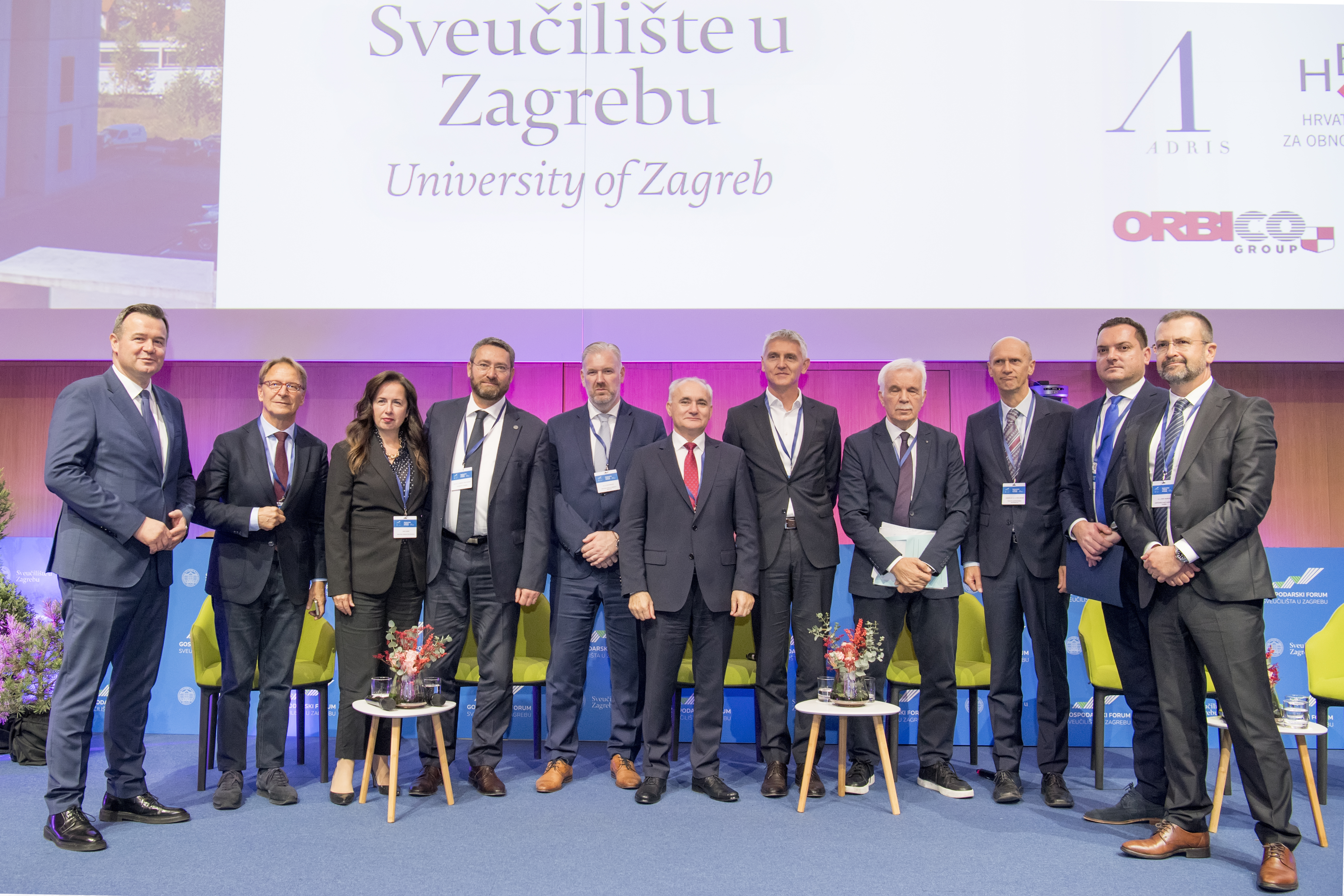
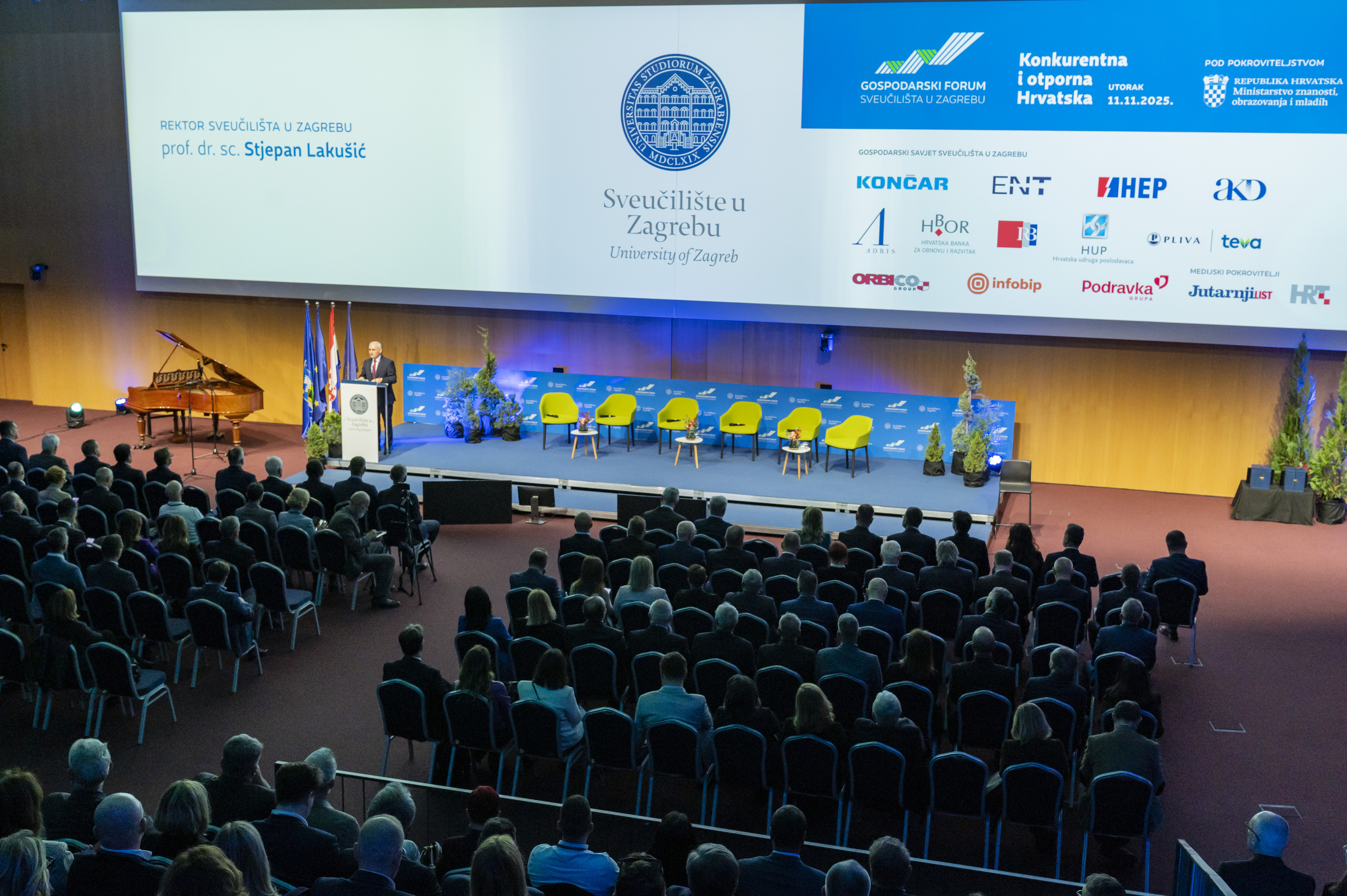
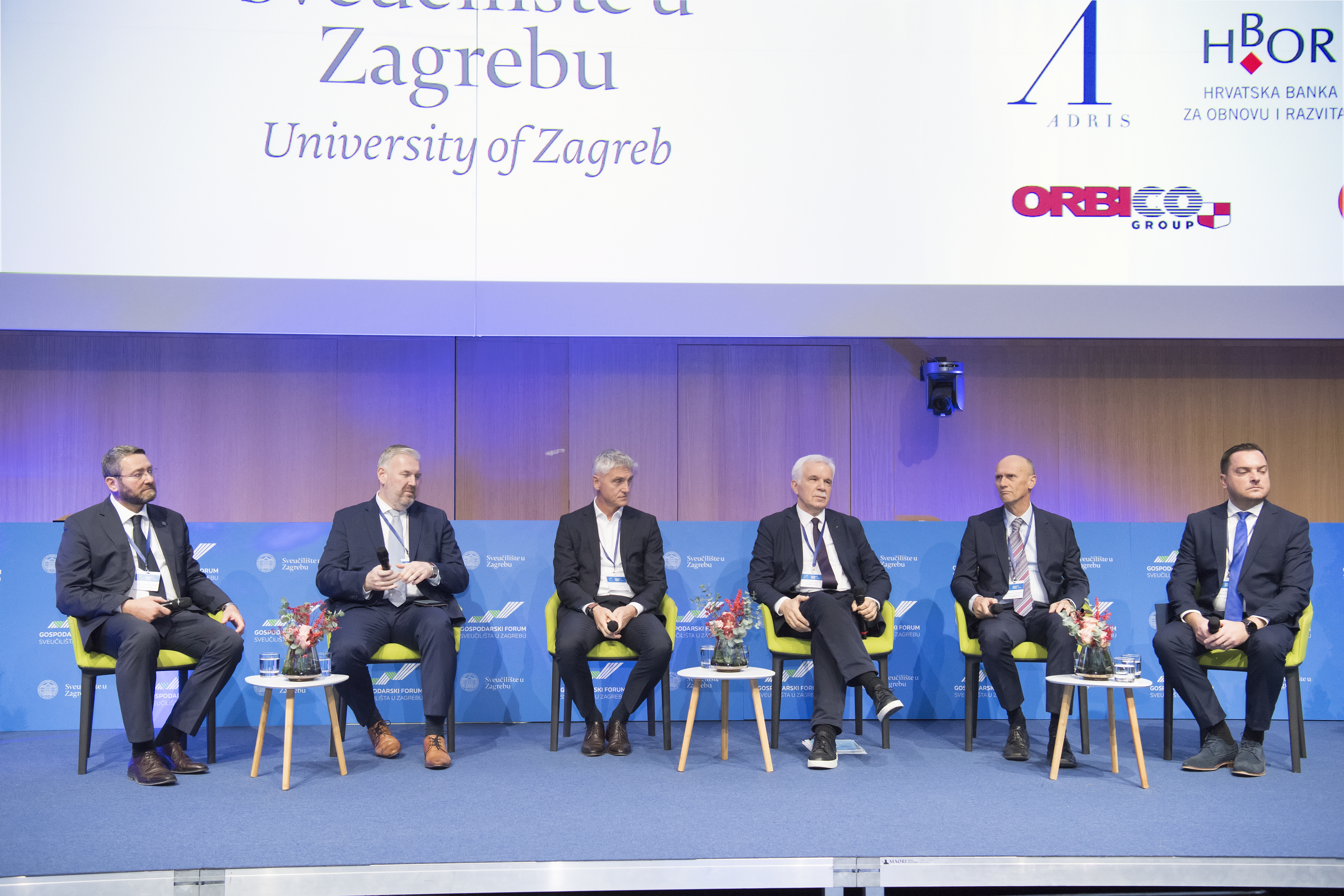
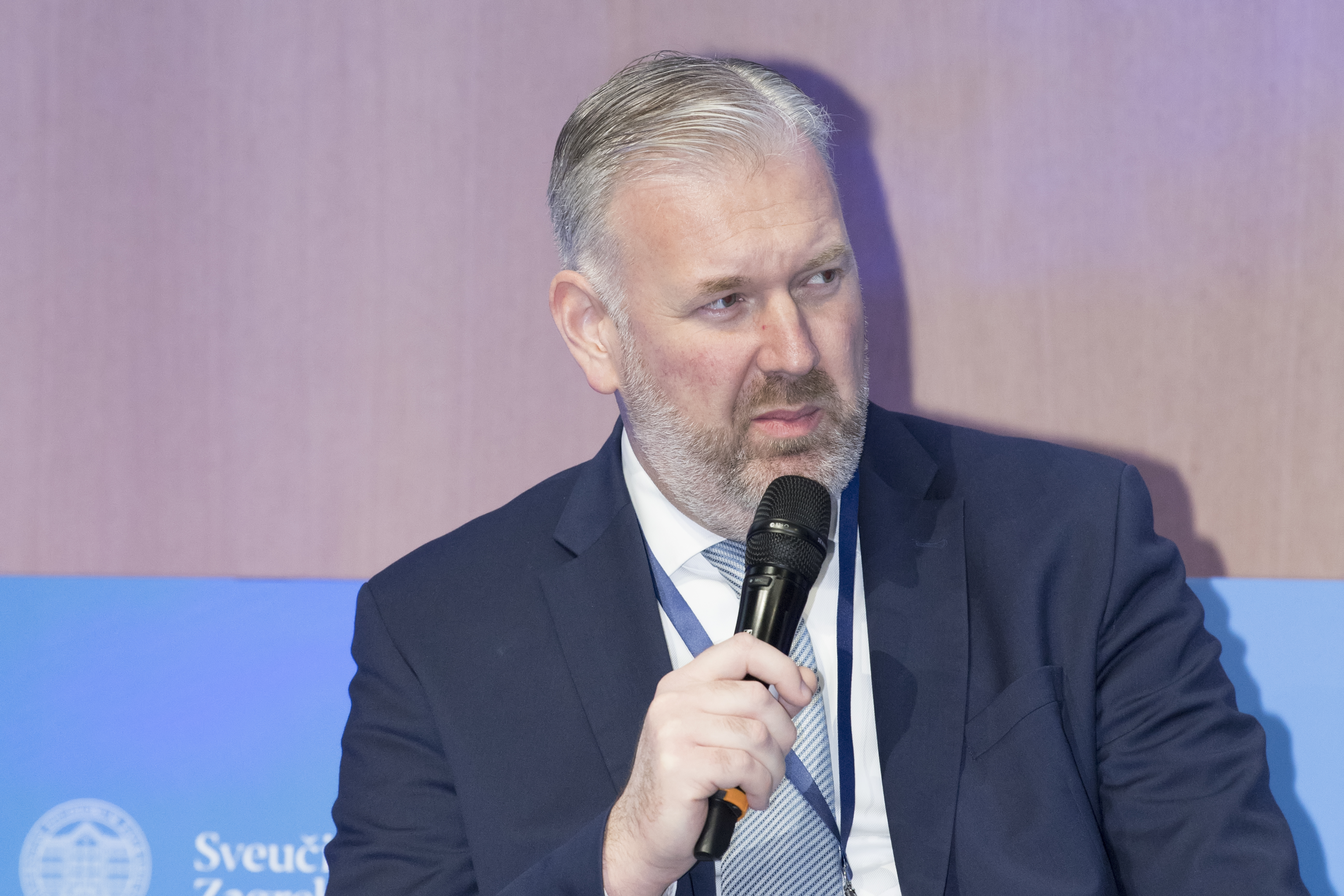
Foto: Branko Nađ, Akademski.hr
Foto: Ivica Bitunjac
The First Economic Forum of the University of Zagreb was held under the title "Competitive and Resilient Croatia" in the ceremonial hall of the South East European Centre for Entrepreneurial Learning (SEECEL) on Tuesday, 11 November.
The event was organised as part of the University of Zagreb Week, which marks the beginning of the 357th academic year with various events taking place from 3 to 15 November and which introduces many aspects of the activities of the largest and oldest university in the Republic of Croatia to the university community and the general public.
As part of the Economic Forum programme, a panel discussion took place entitled "Education, Scientific Research and Partnership with the Economy: Key to Success for a Prosperous and Competitive Croatia". The panellists were: Stipe Župan, State Secretary at the Ministry of Finance, Sven Lončarić, F.C.A., the Faculty of Electrical Engineering and Computing, Mladen Vedriš, PhD, economic expert, Gordan Kolak, MSc, President of the Management Board of Končar d.d., Prof. Tomislav Josip Mlinarić, Vice-Rector, and Alan Herjavec, MSc, Member of the Management Board of the Croatian Bank for Reconstruction and Development.
During the discussion, it was emphasised that the integration of innovation ecosystems into educational programmes and the cooperation between academic community and industry were prerequisites for national competitiveness. The importance of STEM education and the efforts aimed at changing students' mindsets about entrepreneurship to encourage innovation were particularly stressed.
On this occasion, Alan Herjavec, HBOR’s Management Board Member, underlined that innovation was the centre of HBOR's mission - through loans, and particularly through venture capital funds and new instruments. As a successful example of such direction, he pointed out the Vesna Deep Tech Venture Fund, the first regional technology transfer fund worth EUR 49 million connecting the academic community with the economy and encouraging the commercialisation of innovations in the market. "At HBOR, we want even stronger cooperation with the scientific community and are ready to support any initiative of the University that connects science and the economy," said Herjavec.
The need for improving infrastructure, especially specialised laboratory facilities, was also emphasised to support a modern, competitive knowledge industry. Finally, a significant focus of the discussion was put on securing and effectively using the European Union funds intended for research, development and innovation as well as on calling for fairer regional distribution criteria for Croatian institutions and companies.



Foto: Branko Nađ, Akademski.hr
Foto: Ivica Bitunjac
